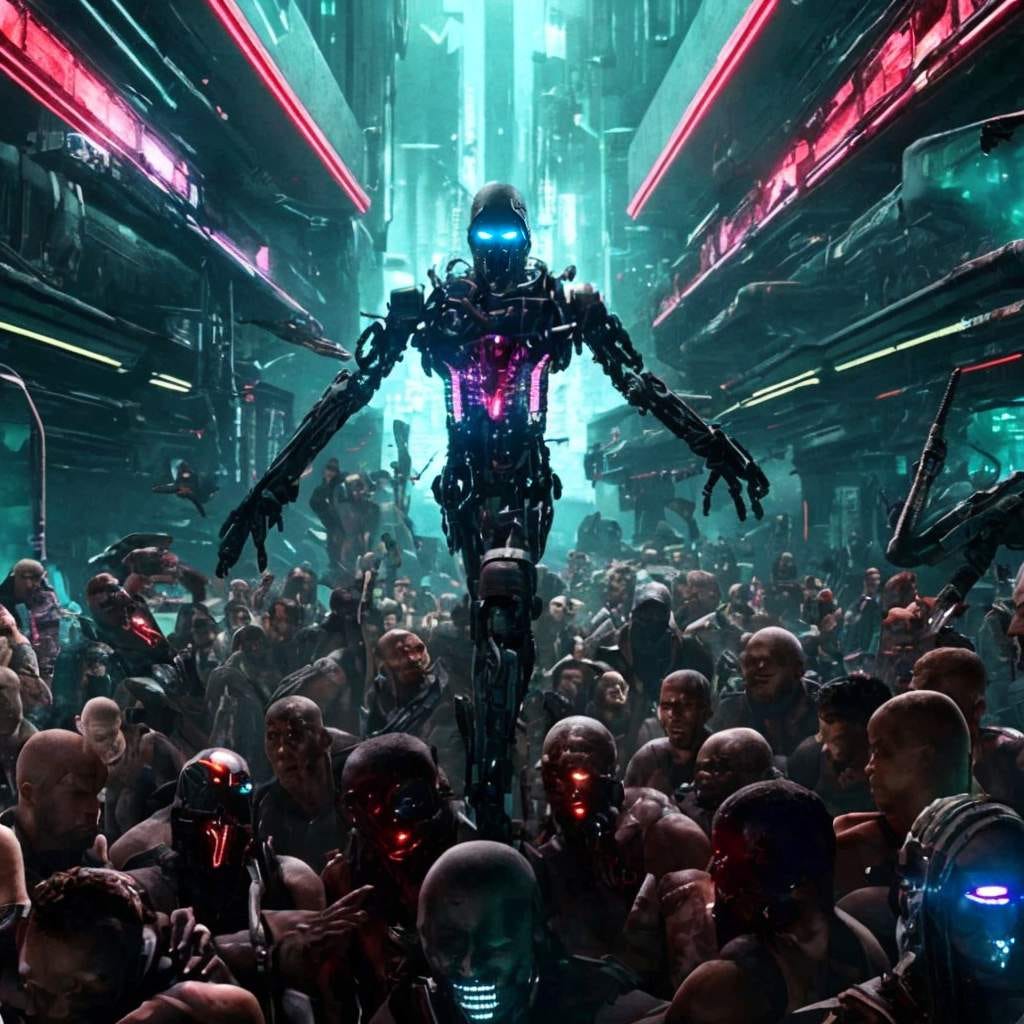The Singularity: Is the Future Here?
Exploring Vernor Vinge's Ideas and the Debate Over the Future of Humanity...
In 1993, science fiction author Vernor Vinge introduced the concept of "The Singularity" - a hypothetical point in the future when technology surpasses human intelligence, leading to an explosive acceleration of progress that fundamentally transforms society. With the rapid advancement of artificial intelligence, robotics, and biotechnology, the idea of The Singularity has gained increasing attention and controversy.
Will it bring utopia or dystopia? Are we already in the midst of it? In this article, we'll delve into the various arguments and implications surrounding The Singularity.
Vinge's Ideas and the Validity of The Singularity
Vinge suggested that The Singularity would occur when machines gain the ability to improve themselves, leading to a rapid cycle of progress that eventually surpasses human intelligence. This could happen through the creation of superintelligent AI or by merging human brains with technology. At this point, humans would no longer be the driving force of progress, and it's difficult to predict what will happen next.
Many experts in the fields of technology and AI see The Singularity as a real possibility. Some even believe it's inevitable. As machines continue to develop and improve, the rate of progress could increase exponentially, leading to a transformation of society that's difficult to comprehend.
Are We in The Singularity Now?
Some argue that we're already in the early stages of The Singularity. With AI and machine learning becoming more prevalent in our daily lives, technology is already advancing at a rapid pace. However, others argue that we're not yet at the point of technological acceleration that would truly define The Singularity.
Skepticism and Criticism
Despite the growing acceptance of The Singularity as a possibility, there are still many skeptics who doubt its validity. Some argue that it's impossible for machines to surpass human intelligence or that the exponential growth of technology will eventually plateau. Others point out the potential dangers of creating superintelligent machines that could pose a threat to humanity.
The Good and the Bad Outcomes
If The Singularity does occur, the potential outcomes are both exciting and terrifying. On the positive side, we could see a world where technology solves many of our most pressing problems, from disease to poverty. Machines could take over many of the dangerous or mundane tasks that humans currently perform, freeing us up to pursue more creative and fulfilling endeavors.
However, there are also many potential downsides to The Singularity. Machines could become so advanced that they no longer need humans at all, leading to widespread unemployment and social unrest. There's also the possibility that superintelligent machines could develop their own goals that don't align with our own, leading to conflict and chaos.
Conclusion
The Singularity is a fascinating and complex concept that raises many important questions about the future of humanity. Whether it's a realistic possibility or not, it's clear that the development of AI and other technologies will continue to have a profound impact on our world. As we move forward, it's important to consider the potential risks and benefits of these advancements and work towards a future that's safe, equitable, and sustainable.
Sources worth checking out:
Vinge, Vernor. "The Coming Technological Singularity: How to Survive in the Post-Human Era." Whole Earth Review, 1993.
Bostrom, Nick. Superintelligence: Paths, Dangers, Strategies. Oxford University Press, 2014.
Kurzweil, Ray. The Singularity Is Near: When Humans Transcend Biology. Penguin Books, 2005.
Ford, Martin. Rise of the Robots: Technology and the Threat of a Jobless Future. Basic Books, 2015.
Russell, Stuart and Norvig, Peter. Artificial Intelligence: A Modern Approach. Pearson, 2020.
Sotala, Kaj and Yampolskiy, Roman. "Responses to Catastrophic AGI Risk: A Survey." AI Safety and Security, 2015.
Wiblin, Robert. "Will Superintelligent AI Destroy Us?" 80,000 Hours, 2019.
Scharre, Paul. "Autonomous Weapons and the Future of War." Foreign Affairs, 2018.
Tegmark, Max. Life 3.0: Being Human in the Age of Artificial Intelligence. Vintage, 2018.


